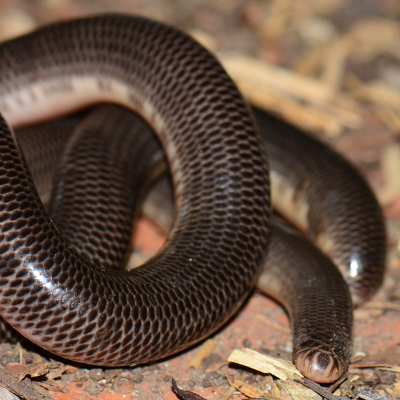
The Brahminy (or Island) Blind snake is common throughout the islands nowadays and does nothing but burrow and eat small amounts of larvae, eggs, termites, and ants. It is said that these tiny snakes made their way to Hawaii in potting soil that was imported from the Philippines in the 1900s. This is because the Island Blind snake causes no threat to Hawaii’s ecosystem or people. There have been snakes found and captured in the state due to illegal importation, but these instances are few and far between.Īlthough snakes are illegal in Hawaii, the Island Blind snake is allowed to thrive there. Michelle Broder Van Dyke covers the Hawaiian Islands for Spectrum News Hawaii.Snakes are not legal to own or breed snakes in Hawaii because they could easily destroy the natural ecosystem and native animal species that are thriving and helping farmers produce food throughout the islands. In Guam, the brown tree snake was accidentally introduced in the 1940s and has had a devastating impact on the island, where it killed most of the island’s native bird population. Snakes and large reptiles pose a threat to the ecosystem, since they have no natural predators. There are no snakes in Hawaii, except for the brahminy blind snake, a small non-venomous snake from Asia and Africa that resembles an earthworm. In Hawaii, it is illegal to own a pet snake or bring a snake to the islands. They are called ball pythons because they curl into a ball when stressed or frightened. The snake is non-venomous and measures 28 inches long.īall pythons are common in the pet trade, native to Western and West-Central Africa, and are constrictors that subdue their prey - small mammals and birds - by coiling around and suffocating them. “Surrendered animals will not be euthanized and may eventually be relocated to an appropriate facility on the mainland.”Īfter the snake was dropped off, the Honolulu Zoo contacted the Hawaii Department of Agriculture, which dispatched inspectors that took custody of the snake. “The State offers amnesty for the voluntary surrender of illegal animals because we do not want these animals set free in the wild,” said Sharon Hurd, chairperson of the Hawaii Board of Agriculture.

If an individual turns in an illegal animal before an investigation is started, they will not be criminally charged or fined.

The anonymous person gave the snake to the Honolulu Zoo under the state’s Amnesty Program, which says individuals may bring illegal animals to any zoo or aquarium, Hawaii Department of Agriculture office or the Hawaiian Humane Society.


 0 kommentar(er)
0 kommentar(er)
